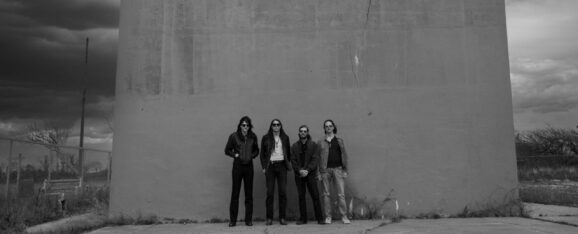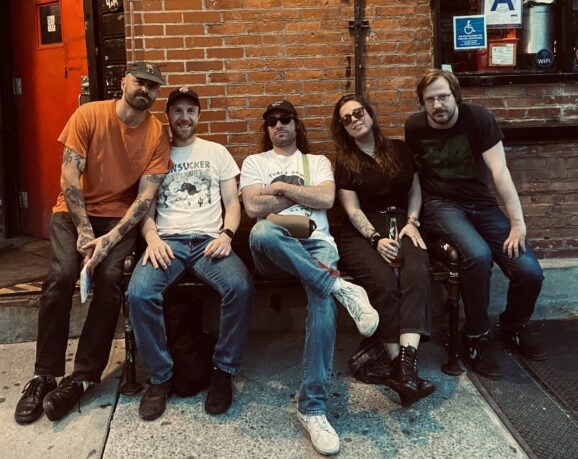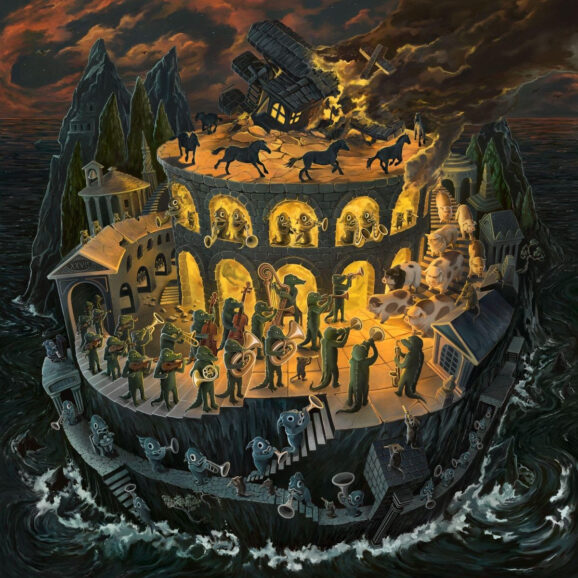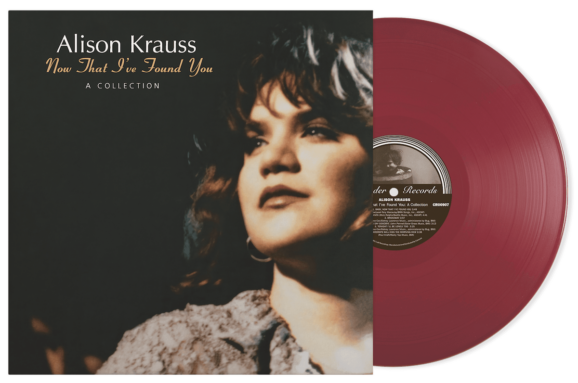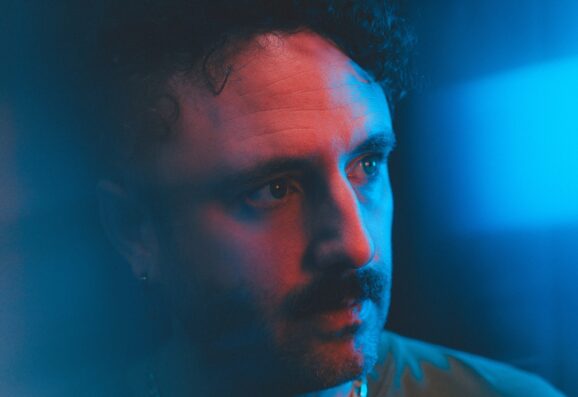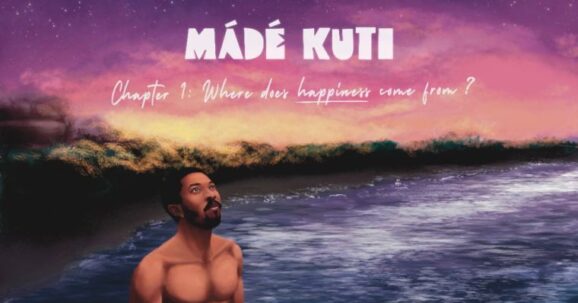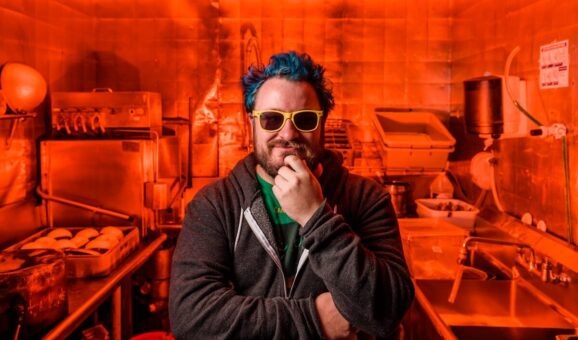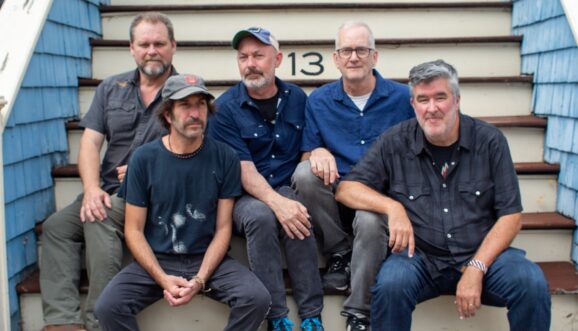
The recent explosion in bluegrass has spawned an entirely new generation of musicians, each learning from the legends who have brought the genre to the high level of respect it deserves, and then tweaking those standards into vast new creations all their own. With backgrounds far from the Appalachian Mountains, the four young members of Yonder Mountain String Band are settling into their own unique sound, melding jam-tinged exploration with classic style pickin’, and pushing the bluegrass you love into the jamgrass you’ll crave.
Colorado has always been a hotbed for bluegrass, and once they settled down in the Denver suburb of Nederland, things really started heating up. Originating in the coffeehouses and intimate rooms throughout the area, YMSB began to gain a faithful crowd, and soon took their music to the festival circuit, and eventually the historic clubs and theatres across the country. With recent sellouts at New York’s Irving Plaza, The Paradise in Boston and a two night run at Burlington, Vermont’s Higher Ground, YMSB is bringing the music of the mountains to the streets. With their own Northwest String Summit Festival, a full summer tour, and a newly released album comprised of Benny Galloway tunes entitled Old Hands, YMSB is pushing the jamgrass progression while maintaining the rich, historical bluegrass traditions.
As YMSB got set to head out on summer tour, we spoke to banjo player Dave Johnston about the new album, bluegrass, festival season, and angry Samoans.
The songs on Old Hands are basically all Benny Galloway originals. Were they completed arrangements when they were presented to you? And what level of freedom did you have to make them your own?
Essentially all the songs remained the same, in the format that he brought them to us, but we all brought our own instrumental ideas to like our solos, and Sally VanMeter did a good job with helping us put together the arrangements in kind of a traditional bluegrass format, or bluegrass/folk format.
Were the songs written specifically for this project?
They weren’t really written with a particular project in mind. Benny Galloway has this huge catalog of all these great songs, and we kind of picked like the thirteen that we wanted to do the most. And as we went through the process of making the record, we kind of got the idea that these songs all sort of suggested a hired hands, working life.
You had met Benny before the band even started, so was this something you had always hoped to do?
Yeah, I met him even before the band. And after the band started playing, we had done a couple of shows with him, at this little place called the Acoustic Coffeehouse in Nederland, and we thought it would be a great idea to try and do an album of Benny songs.
This album is sort of an alternate take on the singer-songwriter style, and a shift from say traditional bluegrass. Is it Benny’s influence that moved the music into a more folk realm?
Well, we all kind of like folk styles of music, and I think when you do the folk style of music really well, without being pretentious, but with a lot of sincerity and simplicity, I think it really resonates well within a bluegrass idiom. Because language-wise, both say, Benny’s music and the music of Bill Monroe are very direct, and it’s easy to figure out what the point is, if there is a point. So I guess we try to do the singer-songwriter thing in so far as it’s Benny’s stuff, but we want to give it like a whole bluegrass ensemble behind the whole thing.
And as you said, the songs included all revolve around a manual labor, farm hand lifestyle. With your upbringings not necessarily being from that style of background, how do you connect with the lyrics?
Well I guess I connect a lot with the idea of efficiency of language, and I connect with a lot of the sentiments that are echoed throughout the characters in the songs. You know, everyone at some point or another has felt like ‘well, I’m kind of just a poor boy, and I can’t please this rich woman’ (laughs). When you turn on the radio, it’s kind of an outdated sentiment, because now it doesn’t seem like a love song really has a lot of merit going through it anymore, or honesty going along with it. It’s more like ‘you wronged me, you suck.’ (laughs) And there are more gracious ways of saying that, and that’s kind of what we’re into.
Why the decision to go back with Sally VanMeter who produced your first album?
Well, she brings a lot of hands on experience to a project, and a great pair of ears. A great sense of musical soul to things. She really has a distinct idea of what she wants out of each instrument…
‘Cause Tim O’Brien produced your last record (Town By Town), and now he sits in on this one…
Well we kind of became friends during the making of that record. As a producer, he’s not as hands on as Sally is, but again, he’s got like a great sense for lyrical soul, or musical soul, and what’s going on with the real heart of the music. And that’s what makes him really genius in his own way.
YMSB is traditional in a sense that you don’t have percussion, and you use single mic techniques occasionally, but in many other ways you are bringing bluegrass to a contemporary level. By covering so much territory within a genre rich in tradition, you’re put in a predicament of playing for a jam audience who may not be totally versed in bluegrass, mingling with serious bluegrass aficionados who grew up on Bill Monroe. How do you handle the straddling of that line?
Well, we manage to keep our music acoustic based, and that has presented it’s own challenges in so far as sound and stuff like that in bigger places, but I think we have a very respectful audience made up of both the jamband thing, and the bluegrass thing. I think the bluegrass audience appreciates how we love to stretch out and really provide for some truly magical moments, and that’s kind of what you want as a musicgoer anyway. And I think that the jamband audience that comes to see us really respects the way we feel about traditional bluegrass and how we feel it’s still very important and relevant. So we have two very disparate camps who both respect the other thing that we’re doing.
The recent newgrass revival, not just on stage, but also with the huge success of the O Brother, Where Art Thou? soundtrack. Do you think with the societal times we are going through right now, people are looking for honesty and realism, that music such as bluegrass can provide?
Yeah, I agree, and actually think they were looking for it before the current issues that are confronting our policy makers and our politicians. And these things that are being brought to the forefront right now are essentially the same themes that have been echoed throughout all the great music across the globe. Treating human beings with respect and dignity, treating your lover with respect, like you would treat your friend. I think it’s a public sentiment that has always kind of been there, yet popular culture doesn’t want to admit to the soul of it’s own constituents. And it’s very distressing when you think about the industry, and the way they can even turn Allen Ginsberg into a pop icon (laughs). It kind of removes all the meaning from it, and once something becomes so popular and everyone in the world knows what it is, it gets diluted and that’s an unfortunate facet of what mass culture is all about. And I think that bluegrass is a reaction against that, and always has been. And great folk music has been a reaction as well. So it’s kind of something that’s always been happening, and now we have this worldwide political backdrop to play it against.
Everyone says jazz is the American music, but do you equate bluegrass with having a similar level of importance in American history and culture?
I do. Well, what kind of jazz are we talking about? Are we talking about Duke Ellington, or Charlie Parker, John Coltrane, Miles Davis? I think Western swing you could put in that same category very easily. Bluegrass and jazz, and all this stuff, kind of all came out of a synthesis of great music from previous cultures or the cultures that people who live here came from. You could say jazz essentially comes from the blues, and it comes from a very simplistic style of music that all of a sudden got synthesized with classical harmonic concepts and now you have this very complex and very unique form of music called jazz. And the same is true with bluegrass. It kind of came from a very underrated complex Irish music and Scottish music which is very difficult music, and it got fused with blues and railroad workers, African-American railroad workers coming into the mountains to build the railroad. I mean, I would definitely say that bluegrass with it’s ensemble style of playing and it’s own indebtedness to cultural synthesis makes it as much of an American music as jazz is.
The banjo is a pretty distinct instrument. How did you end up there?
I have no clue (laughs). A friend of mine in college, his dad brought down a banjo, and I played it, and just decided that was for me (laughs). I don’t know what it was, it just seemed very concurrent with who I am. I like the amount of maintenance it requires, I like the amount of practice it requires, and to really be great at it you have to play the simple things great as well as the complex things great. And I just feel very at home playing it.
Well, you’re coming into your own, but when you look at the innovative playing of Bela (Fleck), are you drawing influence from that contemporary style of playing as well?
Oh yeah, entirely. It’s funny, it’s kind of like a catch-22, you know, Bela is kind of like the pinnacle of musicality and technique in the acoustic world, I think, that’s my opinion. I’m sure anyone could argue that, but I just think he’s the best acoustic player out there right now. And maybe that’s more of a remark about my ears not really being open to other people, but I think it’s important to learn from him, but you can’t just ape the guy when you go up there on stage, cause then you are just aping the guy. It’s like being a guitar player and playing a Django Reinhardt solo completely the same way Django plays it, and in the end you just sound like Django Reinhardt, you don’t sound like yourself. And I also get a great kick out of and a great inspiration from a guy named Pete Wernick, who I think is very innovative in a traditional bluegrass idiom, which is very difficult, and hard to sound unique, cause everyone sounds like Earle Scruggs (laughs). And that’s not a bad model to go after, Earle Scruggs is amazing, and I seem to spend the same amount of working towards the progressive side of things, the Bela type stuff, as I do the Earle Scruggs type stuff. So my influences are constantly changing, and I really like Charlie Parker now, and I use to not like Charlie Parker as much as John Coltrane, but now I like Charlie Parker…and of course Django Reinhardt and all these people are really innovative and amazing players, and I try to get something from everything…including like, pop music, or Joni Mitchell or Lucinda Williams, and music like that is equally as cool instrumentally.
This summer you’re going to play Europe for the first time, but you’re not just playing clubs, you’re performing at the Cambridge Folk Festival. That festival is 40 years old, and rich with history. And this years lineup puts you on the same bill as legendary players like Steve Earle.
Oh yeah, it’s a big deal for me, ‘cause I’m a big Steve Earle fan. I think the guy has really helped out country music, real country music, not this crap that comes out on the radio (laughs).
He doesn’t fly across the stage?
No (laughs). That stuff is unequivocally not, for the most part, I’m not trying to slam on the artists so to speak cause they know what country music is as well, but it seems like the stuff that gets promoted just lacks that kind of real country theme. It just doesn’t seem to have that real honesty.
As we approach festival season, which is synonymous with bluegrass, your playing Bonnaroo, Telluride, High Sierra and then your own festival. Does this time of year just up the ante for you?
It’s definitely the most exciting time. When it’s first starting up, you want to go out there, and your with your peers, and you want to do something different from them, you want them to get a kick out of what your doing musically. So it used to be very intimidating, but now it’s a really exhilarating part of the year. Cause you want to go out there and impress all the other banjo players and songwriters and you want to sing well and you want to come out there as a band that you know, isn’t fuckin’ around (laughs), you know ‘we‘re gonna do our thing, and we’re gonna do it well.’ And then those guys are gonna do their thing, and they’re gonna do it well, so in that regard it’s really exhilarating. It’s kind of like going to your masters thesis class or something. But by the time summer is over you’re kind of ready to go back to theatres and have sound checks and light it up. So it’s kind of like a cycle.
You mentioned Lucinda Williams. So when you go to Bonnaroo as a bluegrass band, and now you’re sharing the stage with like Lucinda Williams and Sonic Youth. How is it playing a festival as diverse as that?
Oh, it’s a blast. I love Sonic Youth. I grew up listening to like Sonic Youth and Black Flag, The Dead Kennedy’s, Sex Pistols, Angry Samoans…you know, I’m from suburban Illinois so punk rock is like a savior, like ‘ah, finally, music with meaning…no more of this crap about summer lovin’ (laughs). I think what we do compared to, say Sonic Youth, is completely on the other side of the music industry, but hopefully, maybe Thurston (Moore) will come see us and be like ‘oh, well, I like the way the lyrics are,’ or ‘I like how they fuck with people’ (laughs).
And your holding your own festival, the Northwest String Summit, at Horning’s Hideout. What is it about that venue?
It’s just an awesome place, just killer. It’s really something else. I can’t really explain it except that there are peacocks running around. So that’s pretty cool. And you can fish. So that makes it kind of a really unique festival setting, when you can fish and run around and see the peacocks and listen to David Grier just blow your mind all over your head.
Where most bands that hold their own festivals invite other small regional bands they support to come play, your “supporting cast” is Vassar Clements, Peter Rowan, Grisman…is that a strange feeling to be a headliner and ask Grisman to come play your festival? Is it almost a weird sense of role reversal?
I wouldn’t say a role reversal, ‘cause the sweeter slots are in the afternoon, because it’s nice and warm and people come out and…when David Grisman plays he’s gonna have as many people there as we are, probably more (laughs). So it’s not really a role reversal, as much as a bullwork of acoustic music. And he’s always gonna have great people, so we’re just honored that he wouldn’t mind sharing the stage with us. That’s how I look at it.
Is there a big communal respect between you and those guys, because you are in some ways continuing on a musical tradition?
Yeah, I would say that there is. I mean, we respect the hell out of everything that they’ve done, or they will do. That’s kind of a blanket thing for us. Cause we wouldn’t have the audiences we have now if it weren’t for them. They’re partly responsible for it….a big part. I don’t know for sure if they respect us, but they say nice things to us when we get off stage (laughs). So I’ll say yes.




